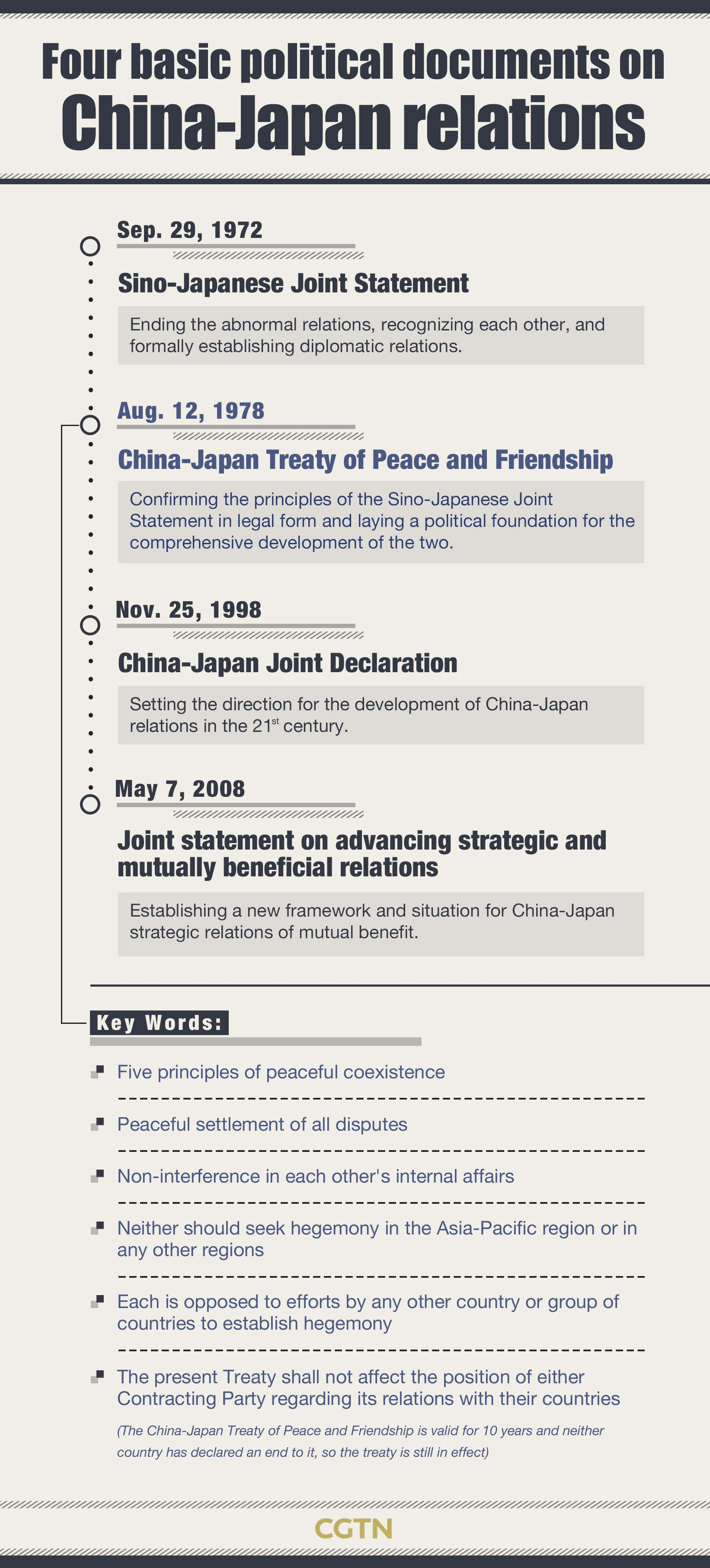China will roll out the red carpet for Japanese Prime Minister Shinzo Abe on October 25, which is also the first official visit to China by a Japanese prime minister in seven years.
During Abe's China trip, the two sides will celebrate the 40th anniversary of the signing of the China-Japan Treaty of Peace and Friendship. Since it was signed on August 12, 1978, bilateral relations have greatly developed.
The "four basic political documents" are often mentioned, including the China-Japan Treaty of Peace and Friendship when talking about China-Japan relations. The other three political documents are the Sino-Japanese Joint Statement in 1972, China-Japan Joint Declaration in 1998 and Joint Statement on Advancing Strategic and Mutually Beneficial Relations in 2008. These basic documents have legally consolidated the political foundation of China-Japan relations as the development cornerstone of cooperative relations between the two sides.

Four basic political documents on China- Japan Relations
(Photo: CGTN)
Besides the four political documents, the four-point principled agreement also deeply affects China-Japan relations. It was reached between the two countries on November 7, 2014 with a view to handling and improving bilateral relations.
First, the two sides have affirmed that they will follow the principles and spirit of the four political documents between China and Japan and continue to develop the China-Japan strategic relationship of mutual benefit.
Second, in the spirit of "facing history squarely and looking forward to the future", the two sides have reached some agreement on overcoming political obstacles in the bilateral relations.
Third, the two sides have acknowledged that different positions exist between them regarding the tensions which have emerged in recent years over the Diaoyu Islands and some waters in the East China Sea, and agreed to prevent the situation from aggravating through dialogue and consultation and establish crisis management mechanisms to avoid contingencies.
Fourth, the two sides have agreed to gradually resume political, diplomatic and security dialogue through various multilateral and bilateral channels and to make efforts to build political mutual trust.
The four-point principled agreement reiterates the spirit of the four political documents, thus serving to ensure the right direction for the growth of bilateral relations. It helps the two sides to properly handle sensitive issues in a timely fashion, and to take concrete action to build political mutual trust and gradually put bilateral relations on a track of sound development.
(Compiled by Mengjia Wang, Siying Li)


